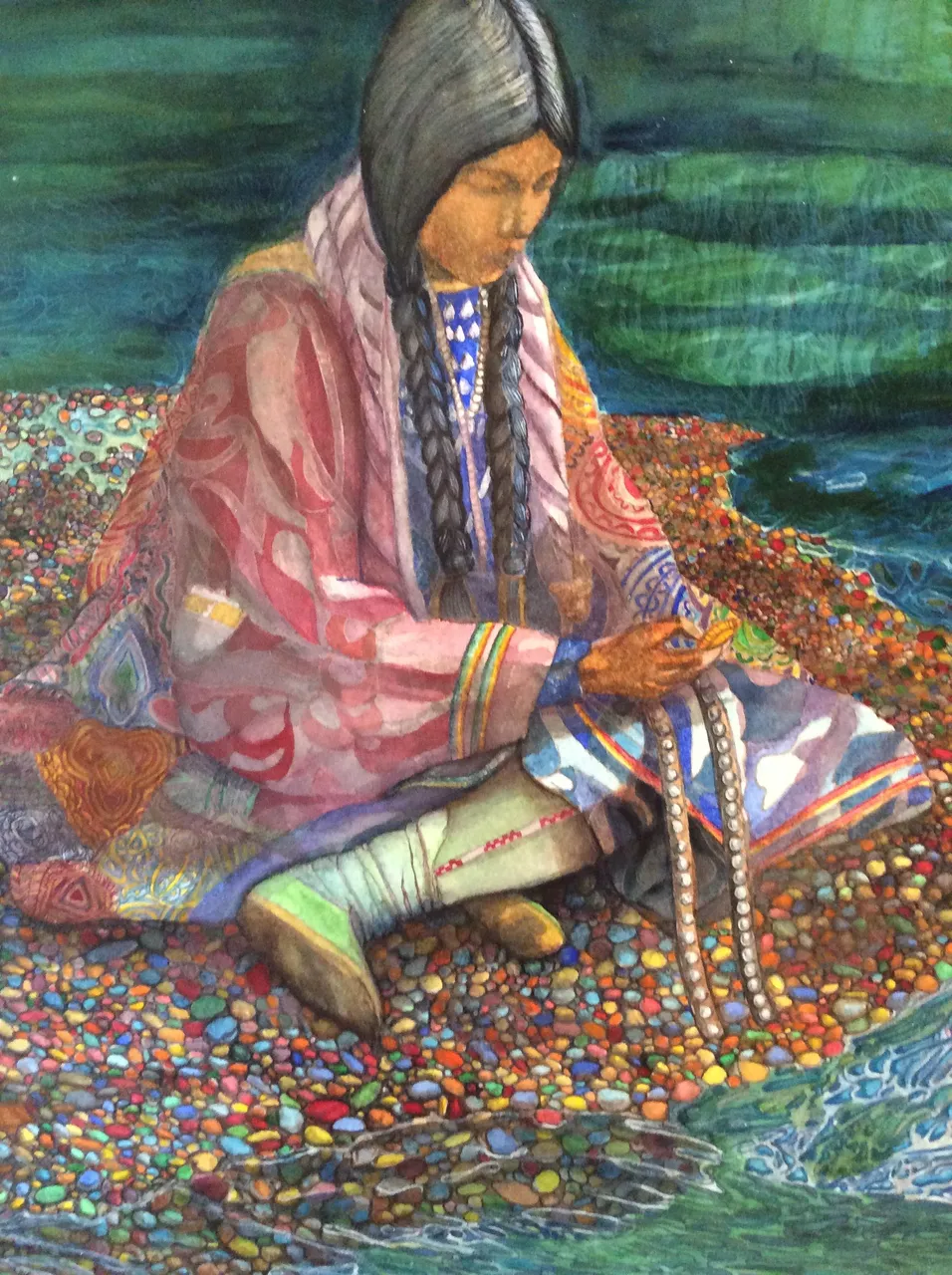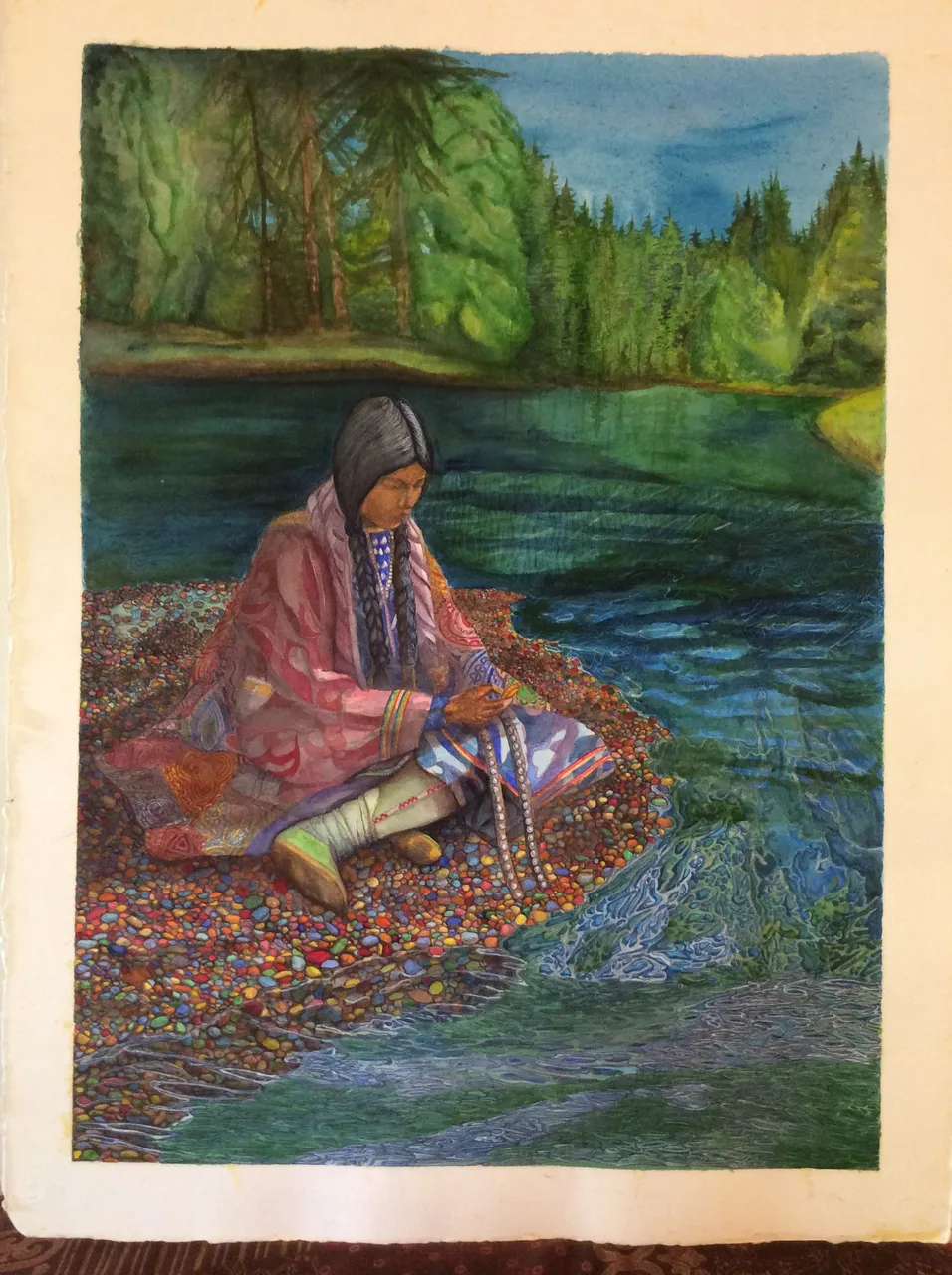A Tribute To My Great Grandma
The image is taken from an old photo taken of a young Piegan Maiden from the Native Americans Tribal Gatherings taken in the late 1800s. My family doesn't have a picture of my Mom's Grandma because my Mom was adopted by my Step-Grandfather after my Mom's Father abandoned my Grandma and my Mother during the 1930s Great Depression here in America. I used the old photo to represent her spirit.
My Mom did meet with her Father's family but they never bonded. I never spent time with that side of the family as a child. Many Native Americans during the Trail Of Tears, didn't register as Native Americans and chose not to live on reservations. The Blackfoot tribes stayed on their traditional lands, they were never forced to move to Oklahoma like many other Eastern Tribes. Many like my family lost their language and culture while assimilating into American society. I've thought about researching and reaching out to my tribal lineage but decided against doing so.
One reason is the resentment many reservation born natives have against people like me that are curious about their Native lineage. Another reason, my family said my Grandpa lied about his mother's Native blood so he could get special privledges afforded natives. My initial research I did when I first reached out told a different story. Back in the day families kept their native bloodline secret because they would be denied jobs and mortgages to buy a home and acreage. So my Grandpa would of only found poverty and hopelessness on the reservation if he had registered as a Native American. Reservation life to this day is riddled with poverty and hopelessness. This makes me question my families story that Grandpa was lying.
Maybe someday when I have the time and money I'll hire a detective that specializes in researching heritage to find out the truth. Until then I'll admire the Blackfoot nation from a respectful distance.
"In 1830 Congress, urged on by President Andrew Jackson, passed the Indian Removal Act which gave the federal government the power to relocate any Native Americans in the east to territory that was west of the Mississippi River. Though the Native Americans were to be compensated, this was not always done fairly and in some cases led to the further destruction of many of the already diminishing numbers of many of the eastern tribes.
The Cherokee Nation was allocated land in Georgia as a result of the 1791 treaty with the U.S. Government. In 1828, not only did whites for settlement purposes desire their land, but gold was discovered. Georgia tried to reclaim this land in 1830, but the Cherokee protested and took the case to the U.S. Supreme Court. The Court decided in favor of the Cherokee, however, the President and Congress forced the Native Americans to give up their land. 1838 called in federal troops in to “escort” approximately 15,000 Cherokee people to their new home in Indian Territory. On the way, approx. 1/3 of the Cherokee people died. This event, known to the Cherokee as “The Trail Where They Cried”, is better known as the Trail of Tears in U.S. History textbooks."


30 x 23, 300lb hotpress paper, watercolor and metallic watercolor.


